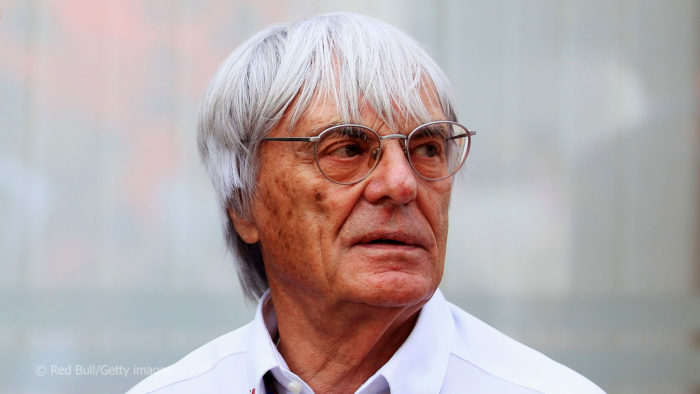It seems that one of the biggest talking points around Formula 1 right now is the fanbase. Or, rather, how toxic the fanbase has become. In the last few years F1 fandom has become incredibly tribal. It’s not like tribalism has existed in F1 before (you only have to look at the Tifosi, for instance, or Brazil’s obvious love of drivers from its own country), but with the advent of Formula 1’s embrace of social media and reality TV through Drive To Survive it’s become stronger and more noticeable than ever before. Fans will increasingly get behind teams and drivers to the point of almost blind loyalty. Social media can end up becoming a hellscape if even a mildly controversial thing happens on track, in the paddock or in the media. Media personalities are blamed for being too “biased” towards certain drivers, or indeed drivers of certain nationalities.
You wouldn’t be blamed for thinking that this has all been caused by social media and the Drive To Survive effect. On the surface, that really seems like what it is. Social media has indeed made our world and our discourse much more polarised. Drive To Survive has indeed been guilty of providing a narrative that isn’t exactly representative of what goes on in Formula 1. But, I think the real reason why this has happened lies quite a bit deeper than that. I think it lies within a hangover of what Formula 1 used to be. What Formula 1 was back in the old days, when it was run by Bernie Ecclestone.
This might seem like a bit of a reach, but allow me to explain. Remember how F1 was back before Liberty Media owned it? An ever-increasing number of us don’t. I am one of the ones who does, however, and it was definitely a very different place. You would never see drivers or teams using social media to build a platform. In fact, social media was effectively banned from Formula 1 until the Liberty Media era. You wouldn’t see fly on the wall programmes like Drive To Survive being considered, let alone made. The fans were kept incredibly separate from the paddock and very rarely got to interact with the drivers. All of this was done to preserve an atmosphere of exclusivity. In Bernie Ecclestone’s mind, Formula 1 was an ultra-exclusive club for the ultra-wealthy, ultra-famous and ultra-connected. The riff-raff like us just weren’t allowed. Bernie was more interested in people who wanted to buy Rolex watches and Sunseeker yachts, not people who wanted Max Verstappen shirts and Daniel Ricciardo hats. He thought that those super wealthy people were the ones who would bring the real money and the real exposure to Formula 1.
Then, when Liberty Media took over, Formula 1 went from being access no areas to almost access all areas. The drivers got on social media. The teams started doing fun social media content. We got Drive To Survive. There was a bigger push towards items that ordinary fans could afford, as opposed to luxury products for those who had almost unlimited cash to splash. Whilst all of those things have been a big success within such a short time and it’s effectively safeguarded the sport for a whole extra generation to come, it has come at a cost. The cost has been that a lot of fans have become very, very tribal. Not only that, but they have also developed incredibly parasocial relationships with the drivers they admire. This has especially been the case with F1’s biggest heartthrobs (such as Charles Leclerc and Mick Schumacher) and the ever-rising status of Lewis Hamilton and Max Verstappen.
Currently, F1 fans just don’t know the boundaries they’re supposed to keep. It’s not because they’re deliberately overstepping them. It’s because they were never told what those boundaries were. They never actually got the chance to know what those boundaries are. Bernie’s F1 never showed them the boundaries because of how exclusive it was, and Liberty Media’s F1 hasn’t shown them the boundaries yet because it’s new media-ified the series incredibly quickly. With a whole load of fans (particularly younger ones who have come in through the Drive To Survive era) who just have absolutely no idea of the boundaries they’re supposed to keep (because they were never shown them in the first place) all interacting with F1 and its personalities through social media and reality TV, you have a recipe for extreme tribalism.
In a lot of other motorsports, you don’t see this level of crazy tribalism. IndyCar doesn’t have as much of a problem with it. Neither does the British Touring Car Championship, or the World Endurance Championship, or the IMSA Sports Car Championship, or the V8 Supercars Championship. Why is that? Because all of those series have traditionally had much better fan access than F1. With that much better fan access, fans have learned the boundaries that they’re not supposed to overstep with teams and drivers. Relationships between the drivers and their fans are much better and a lot less parasocial than the ones you see in F1. You wouldn’t see people obnoxiously slamming or defending Shane Van Gisbergen on social media if he did something a tad controversial, for instance. When Jason Plato and Matt Neal tried to deliberately sports entertainment-ify their rivalry back in the ‘00s to get headlines, the fans were fairly tribal but not to the levels that we see now with F1 fans. This wasn’t before the era of social media, either; quite a few people were using Facebook and Twitter by this point!
Is there anything Formula 1 can do to solve this problem? Honestly, I don’t think it can do that much. It’s already made its big decisions regarding fan access and fan interaction. I guess the best thing it can do at the moment is to be more active about what boundaries it expects of its fans. There have been individual teams who have spoken out against harassment by fans, but that isn’t enough in my opinion. Formula 1 itself needs to get involved when it becomes obvious that things are getting very toxic. This is something that Formula 1 hasn’t had to think about before the Liberty Media and, unfortunately, it means that the series just doesn’t really know how to deal with it.
What can us, the fans of Formula 1, do? Firstly, respect the boundaries of the teams and drivers. It’s something we need to learn pretty sharpish, especially considering that many of us just don’t know the boundaries. We were never shown them under Bernie’s rule. We need to be aware that the drivers are human beings who have a right to privacy and a right not to be harassed. This doesn’t extend to drivers, either. It needs to extend to team staff who end up being in the eye of the fanbase, as well as media personnel. We shouldn’t see a repeat of what happened to Hannah Schmitz and Ted Kravitz again, all because of fans getting too angry and not realising that harassing team staff and media personnel over certain grievances is a really bad idea.
Secondly, we should maybe come to the realisation that, for the one or two great things Bernie Ecclestone did for Formula 1, he also did a lot of things that were not great. One of those things that was not great? Insisting on making F1 as exclusive as possible in a world where media, fan access and fan interaction was changing into the social media age. Whilst he may have thought that protecting F1’s exclusivity was a good idea at the time, it only came back to bite the series later. Not just in terms of it being behind the times in marketing and fan interaction until Liberty Media bought F1, but also in terms of showing fans how they should behave when they’re given more access to their favourite personalities.




Leave a reply